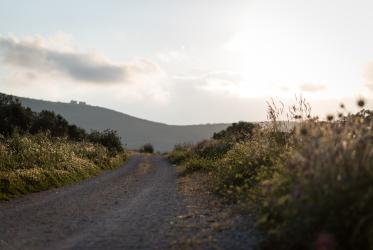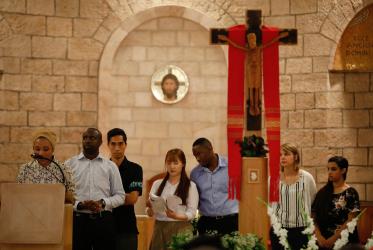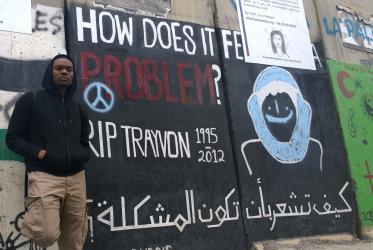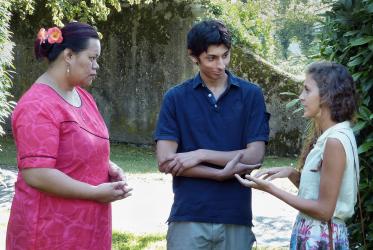Displaying 1 - 16 of 16
“My hope is in you”—youth in the Holy Land carry the future
17 August 2022
WCC invites all to join World Week of Peace in Palestine and Israel
17 September 2018
Diakonia: “a tool to reach abundance of life”
24 July 2018
Walking to Emmaus in the Holy Land, and Sweden
12 May 2015
“You don't all have to be the same”
01 July 2014
Youth build multi-faith community in Bossey
28 August 2013









